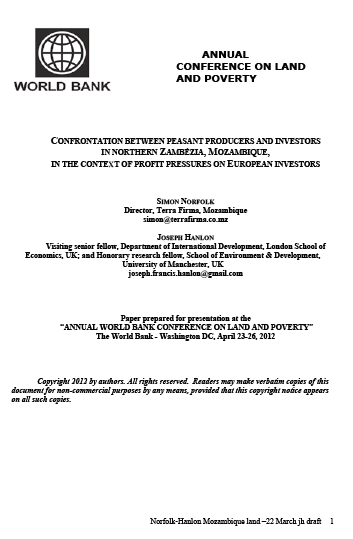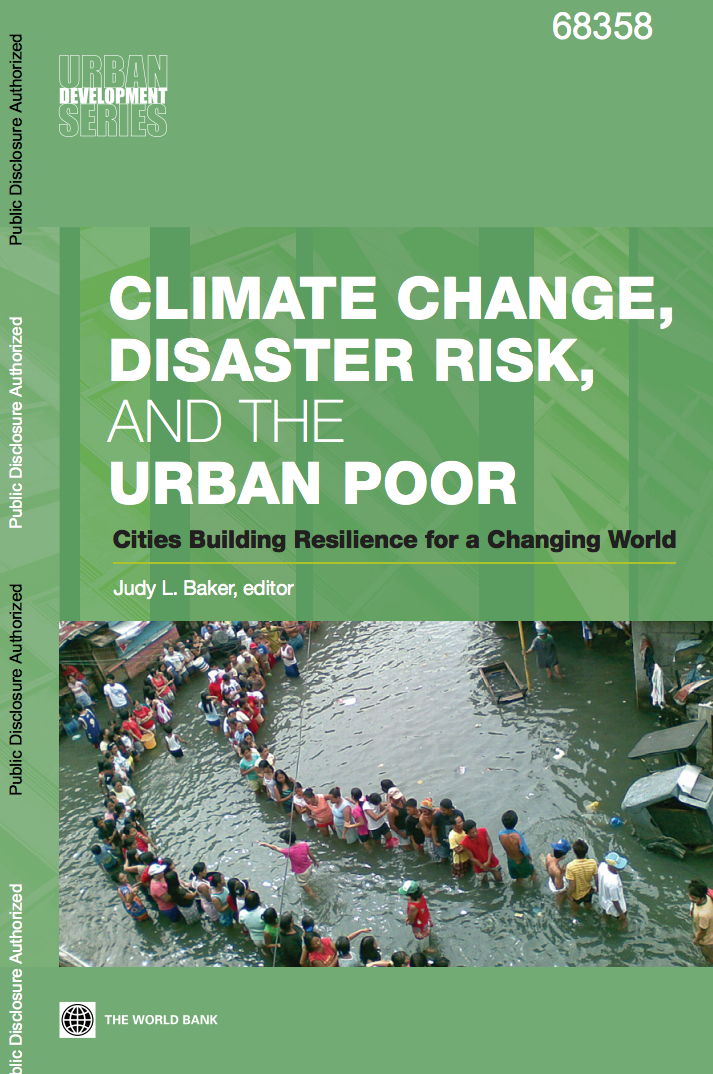The World Bank is a vital source of financial and technical assistance to developing countries around the world. We are not a bank in the ordinary sense but a unique partnership to reduce poverty and support development. The World Bank Group has two ambitious goals: End extreme poverty within a generation and boost shared prosperity.
- To end extreme poverty, the Bank's goal is to decrease the percentage of people living on less than $1.25 a day to no more than 3% by 2030.
- To promote shared prosperity, the goal is to promote income growth of the bottom 40% of the population in each country.
The World Bank Group comprises five institutions managed by their member countries.
The World Bank Group and Land: Working to protect the rights of existing land users and to help secure benefits for smallholder farmers
The World Bank (IBRD and IDA) interacts primarily with governments to increase agricultural productivity, strengthen land tenure policies and improve land governance. More than 90% of the World Bank’s agriculture portfolio focuses on the productivity and access to markets by small holder farmers. Ten percent of our projects focus on the governance of land tenure.
Similarly, investments by the International Finance Corporation (IFC), the World Bank Group’s private sector arm, including those in larger scale enterprises, overwhelmingly support smallholder farmers through improved access to finance, inputs and markets, and as direct suppliers. IFC invests in environmentally and socially sustainable private enterprises in all parts of the value chain (inputs such as irrigation and fertilizers, primary production, processing, transport and storage, traders, and risk management facilities including weather/crop insurance, warehouse financing, etc
For more information, visit the World Bank Group and land and food security (https://www.worldbank.org/en/topic/agriculture/brief/land-and-food-security1
Resources
Displaying 4016 - 4020 of 4906
Food Security and Wheat Prices in
Afghanistan : A Distribution-sensitive Analysis of
Household-level Impacts
This paper investigates the impact of
increases in wheat flour prices on household food security
using unique nationally-representative data collected in
Afghanistan from 2007 to 2008. It uses a new estimator, the
Unconditional Quantile Regression estimator, based on
influence functions, to examine the marginal effects of
price increases at different locations on the distributions
of several food security measures. The estimates reveal that
Impact of Social Fund on the Welfare
of Rural Households : Evidence from the Nepal Poverty
Alleviation Fund
The Nepal Poverty Alleviation Fund is a
World Bank supported community-driven development program.
Its objective is to improve rural welfare, particularly for
groups that have traditionally been excluded for reasons of
gender, ethnicity, caste, and location. Since its launch in
2004, the Fund has covered the 40 poorest districts of the
country, supported some 15,000 community organizations, and
benefited more than 2.5 million people. This paper attempts
Confrontation between peasant producers and investors in northern Zambézia, Mozambique, in the context of profit pressures on European investors
Foreign agricultural investors are clashing with local peasants in Mozambique, in a confrontation over agricultural and development models. Foreign investors looking a apparently vacant land promise high (often inflated) profits to investors and local partners. Some hope to capitalise on carbon credits or produce biofuels, and claim to be green investments. All promise jobs, schools, and local development. Local backers support the outside investors and their plantations with terms like "progress" and "modernisation".
Confrontos entre Produtores, camponeses e investidores na Zambézia, norte de Moçambique, no contexto de pressões relativas ao lucro em investidores europeus
Investidores agrícolas estrangeiros estão em conflitos com camponeses locais em Moçambique, num confronto sobre modelos agrícolas e desenvolvimento. Investidores estrangeiros de olho em terra aparentemente vaga, prometem lucros elevados (muitas vezes inflacionados) a investidores e parceiros locais. Alguns esperam capitalizar com créditos de carbono ou produzir biocombustíveis e alegam ser investimentos “verdes” (ecológicos). Todos prometem empregos, escolas e desenvolvimento local.
Climate Change, Disaster Risk, and the Urban Poor : Cities Building Resilience for a Changing World
Poor people living in slums are at
particularly high risk from the impacts of climate change
and natural hazards. They live on the most vulnerable land
within cities, typically areas deemed undesirable by others
and thus affordable. This study analyzes the key challenges
facing the urban poor, given the risks associated with
climate change and disasters, particularly with regard to
the delivery of basic services, and identifies strategies









